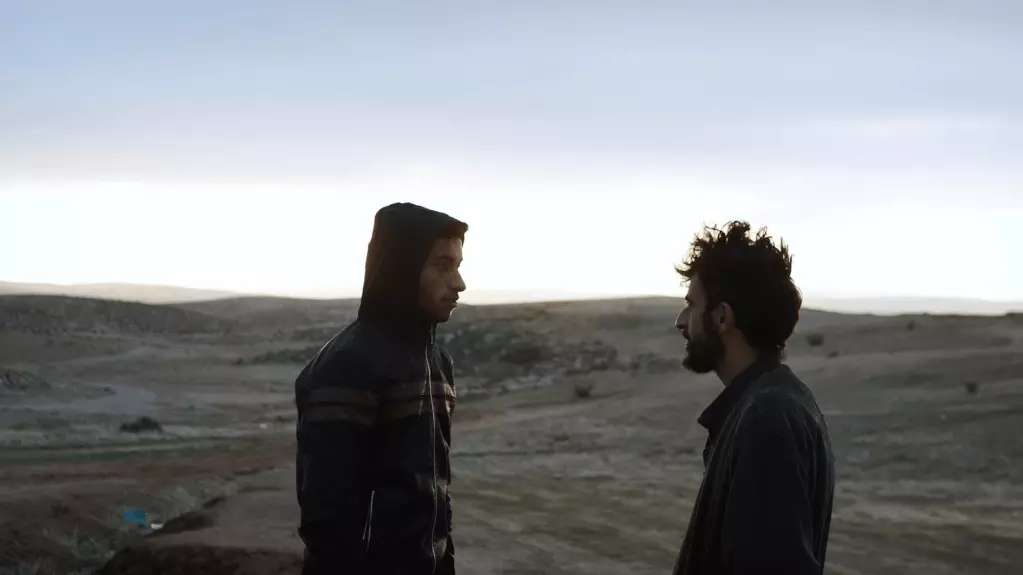The world of documentary filmmaking often serves as a mirror reflecting social realities, human struggles, and the intricate dynamics of power and resistance. The recent release of “No Other Land,” which has garnered acclaim and prestige, including an Academy Award nomination for Best Documentary Feature, exemplifies this role. Set against the backdrop of the ongoing Israeli-Palestinian conflict, the film provides profound insights into the root causes of enmity and displacement, challenging viewers to confront uncomfortable truths about territorial struggles and their human toll.
“No Other Land,” directed and produced by a collective of Palestinian and Israeli activists, represents a unique collaborative effort. This fusion of perspectives is vital, as it challenges the often monolithic narratives surrounding the Israeli-Palestinian conflict. The film chronicles the incremental expulsion of the West Bank community of Masafer Yatta, home to twenty ancient Palestinian villages. The filmmakers, including Basel Adra and Yuval Abraham, leverage a five-year span from 2019 to 2023 to document the emotional and physical landscape of this area. Adra’s first-hand experiences as a Palestinian journalist are particularly poignant; through his lens, we witness the destruction of homes, schools, and essential infrastructure, all framed as “legal” actions under the guise of military necessity.
This documentary does not merely present facts; it tells a story rich in human connection and the complexities of friendship forged in adversity. The partnership between Adra and Abraham exemplifies how hope can flourish even amidst despair. Their relationship serves as a microcosm of broader possibilities for peace and understanding in a region fragmented by age-old conflicts.
The timing of “No Other Land” is significant, as it emerges in the wake of renewed hostilities between Israel and Hamas. While the film predates the recent war, it illuminates the underlying animosities and grievances that fuel such conflicts. Its release amidst a fragile ceasefire makes the documentary not just relevant, but essential viewing for those seeking to understand the historical and cultural contexts feeding current tensions. Critics have embraced the film, evidenced by its remarkable 100% score on Rotten Tomatoes, which speaks to its powerful storytelling and the urgent nature of its message.
Viewing “No Other Land” in conjunction with the current geopolitical climate forces audiences to critically engage with the material. The horror and reality of conflict depicted in the film resonate with the contemporary struggles faced by communities caught in the crossfire, prompting reflection on longer-standing issues of human rights and dignity.
While “No Other Land” seeks to unearth a singular narrative around the Israeli-Palestinian experience, other recent film releases, such as “Love Me,” expand the ways in which narratives can be shaped. Directed by Sam and Andy Zuchero, this feature debut focuses on an entirely different but equally human theme: love across eons, connecting characters long after humanity has vanished. The use of various innovative filmmaking techniques—ranging from animatronics to game engines—works to create an experimental experience that reflects contemporary discussions around technology and identity.
Such a diverse cinematic landscape emphasizes that storytelling can transcend traditional boundaries. Films like “Marcello Mio,” and “Green and Gold” further explore individual human experiences against broader socio-political backdrops. Each provides a unique lens—whether through the lens of a daughter’s relationship with her father or a farmer’s desperate bet on a football team—that encourages audiences to explore the kaleidoscope of human emotions.
The recent surge in documentary and feature films that tackle social issues indicates a growing willingness within the film industry to confront uncomfortable topics. Initiatives from organizations like Alula Film highlight the importance of representation and narratives from underrepresented communities, exemplified in the debut film “This Woman,” which reflects on the emotional turmoil surrounding personal identity and societal expectations during the pandemic.
These films collectively ask us to reflect upon not only the narratives of others but also our own positionality within these stories. For instance, the plight and questioning of a woman caught in an unfulfilling marriage amid the pandemic serve as a reminder of how societal pressures can shape personal experiences in profound ways.
As we witness these films unfold on the silver screen, we are reminded that cinema is more than mere entertainment. It can be a powerful tool for empathy and change, catalyzing conversations around critical issues while encouraging nuanced understandings of complex human emotions and interactions. The exceptional work seen in films like “No Other Land” reinforces the necessity of such storytelling, urging audiences to engage deeply with the multifaceted conflicts surrounding us and the shared humanity that underlies them.

